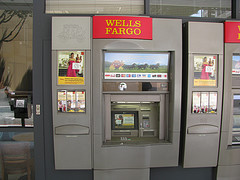Wells Fargo To Pay $38.5 Million In Response To Claims It Neglected Bank-Owned Homes In Minority Neighborhoods
The discrimination complaint, filed by the National Fair Housing Alliance with the Dept. of Housing and Urban Development, came on the heels of a 2012 NFHA study that claimed Wells Fargo and other large mortgage servicers were giving preferential treatment to bank-owned properties in areas with a higher concentration of white residents, while allowing homes in non-white neighborhoods to fall into disrepair.
When lenders foreclose on a property, they are obliged to maintain it, but the NFHA study alleged that bank-owned properties in non-white communities were 42% more likely to have more than 15 maintenance problems, and 82% more likely to have broken or boarded-up windows than foreclosed homes in predominantly white areas.
$27 million of the total payout will go to provide funds in 19 metropolitan areas — Atlanta; Baltimore; Baton Rouge/New Orleans; Charleston, SC; Chicago; Oakland; Dallas; Denver; Dayton, OH; Grand Rapids, MI; Indianapolis; Miami; Milwaukee; Orlando; Philadelphia; Toledo, OH; and Washington, DC. — to encourage homeownership, “neighborhood stabilization, property rehabilitation, and development in communities of color.”
In addition to the $27 million to NFHA and its associated groups, Wells has agreed to fork over $11.5 million to HUD to support development in 25 additional metro areas: Austin, TX; Bakersfield, CA; Detroit; Fort Lauderdale; Fresno, CA; Houston; Kansas City, MO; Las Vegas; Los Angeles; Memphis; Modesto, CA; New York City; Phoenix; Riverside, CA; Sacramento; San Antonio; San Diego; San Jose, CA; Santa Ana, CA; St. Louis; Stockton, CA; Tampa; Vallejo, CA; Virginia Beach; and West Palm Beach.
Funds will be managed by the NFHA and 13 local non-profit fair housing organizations in these areas. According to a statement from these groups, the money will be disbursed through a variety of grants for things like down-payment assistance for people looking to buy, or for renovation efforts for those homes that languished in foreclosure.
“Many neighborhoods across the country have been seriously damaged by the foreclosure crisis, including the impact of REO [Real-Estate Owned] homes on property values, curb appeal, and tax revenue for schools,” said Shanna Smith, CEO of the NFHA. “Our joint efforts will help lay the foundation for the industry to get some of those neighborhoods back on their feet.”
In addition to the money, Wells Fargo, which does not admit any actual culpability in this issue, has agreed to implement best practices for the maintenance and marketing of its REO properties, which will be monitored by a third party to ensure that the servicer is maintaining and marketing these properties properly.
The bank has also promised to give a higher priority to owner-occupants than real estate investors when it comes to actually purchasing REOs, by extending its current Homeowner Priority period from 12 to 15 days. Furthermore, each time the price is dropped on a REO property, Wells Fargo will start the clock on a new five-day Homeowner Priority period.
“Other banks should follow Wells Fargo’s lead and engage in broad relief to communities damaged by the foreclosure crisis,” adds Smith. “This is a huge step in the right direction and more is needed to get our neighborhoods, especially communities of color, back on their feet.”
Want more consumer news? Visit our parent organization, Consumer Reports, for the latest on scams, recalls, and other consumer issues.


